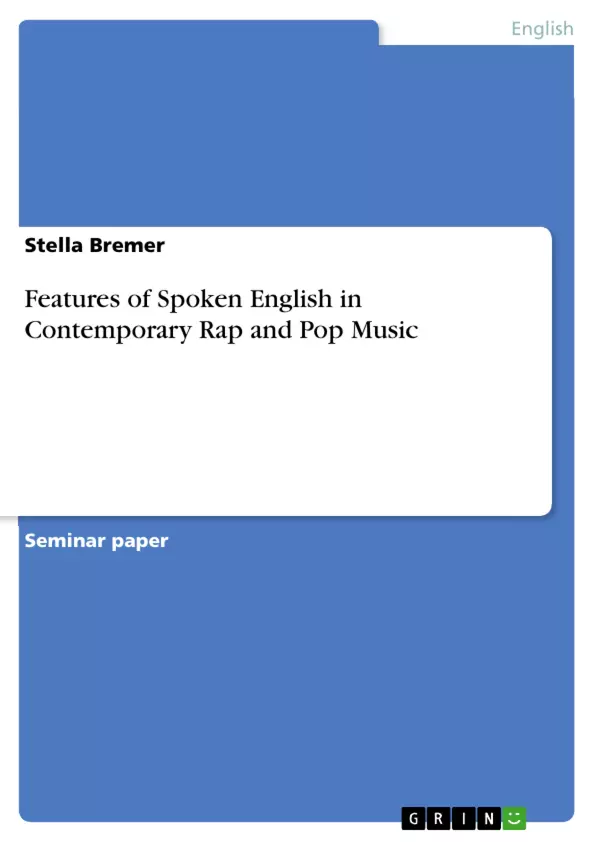This paper delves into the intricate relationship between written and spoken language features within the context of contemporary music, specifically examining rap and pop song lyrics. Drawing inspiration from linguistic theories proposed by Peter Koch, Wulf Oesterreicher, and Douglas Biber, the study evaluates the extent to which lyrics in rap songs exhibit characteristics associated with spoken language, in contrast to the more traditionally written nature of pop songs. By analyzing three rap and three pop songs, the paper explores the nuances of linguistic expression, shedding light on the distinctiveness between the two genres. The research method, results, and a comparative discussion provide valuable insights into the evolving dynamics of language in the realm of music, culminating in a brief conclusion that encapsulates the findings and implications of the study.
Inhaltsverzeichnis (Table of Contents)
- Introduction.
- Literature....
- Methodology.
- Results........
- Discussion.
- Conclusion
Zielsetzung und Themenschwerpunkte (Objectives and Key Themes)
This paper examines the lyrics of contemporary rap and pop songs, analyzing them for features of spoken English, as described by Peter Koch and Wulf Oesterreicher and by Douglas Biber. The study compares the lyrics of the two genres to determine the degree to which they resemble written or spoken texts, with a specific focus on rap songs. The aim is to investigate if the oral history of rap makes it a more spoken form of English than pop, which has a longer tradition of recorded music and planned lyrics.
- Spoken vs. written language in contemporary music lyrics
- Analysis of linguistic features related to orality and literacy
- Comparison of rap and pop song lyrics
- The influence of oral traditions on rap music
- Linguistic theories of spoken and written texts
Zusammenfassung der Kapitel (Chapter Summaries)
- Introduction: This chapter introduces the topic of spoken English in contemporary rap and pop music, outlining the paper's objectives and the theoretical framework by Koch and Oesterreicher and Douglas Biber.
- Literature: This chapter presents the theoretical approaches of Peter Koch and Wulf Oesterreicher and Douglas Biber, who differentiate between spoken and written texts based on medium, concept, and linguistic features. The chapter also discusses the concept of "medium transferability" and explains the features that indicate closeness and distance in spoken texts.
- Methodology: This chapter describes the selection of songs for analysis and the methodology applied. The study uses ten linguistic features identified by Biber to determine the degree of orality or literacy in the songs.
Schlüsselwörter (Keywords)
This paper focuses on the features of spoken English in contemporary rap and pop music, utilizing the linguistic theories of Koch and Oesterreicher and Biber. Key themes include the comparison of spoken and written texts, orality and literacy in music lyrics, and the impact of oral traditions on rap music. The analysis employs linguistic features such as contractions, discourse particles, and pronoun use to determine the degree of orality or literacy in the songs.
- Arbeit zitieren
- Stella Bremer (Autor:in), 2017, Features of Spoken English in Contemporary Rap and Pop Music, München, GRIN Verlag, https://www.hausarbeiten.de/document/1440836


